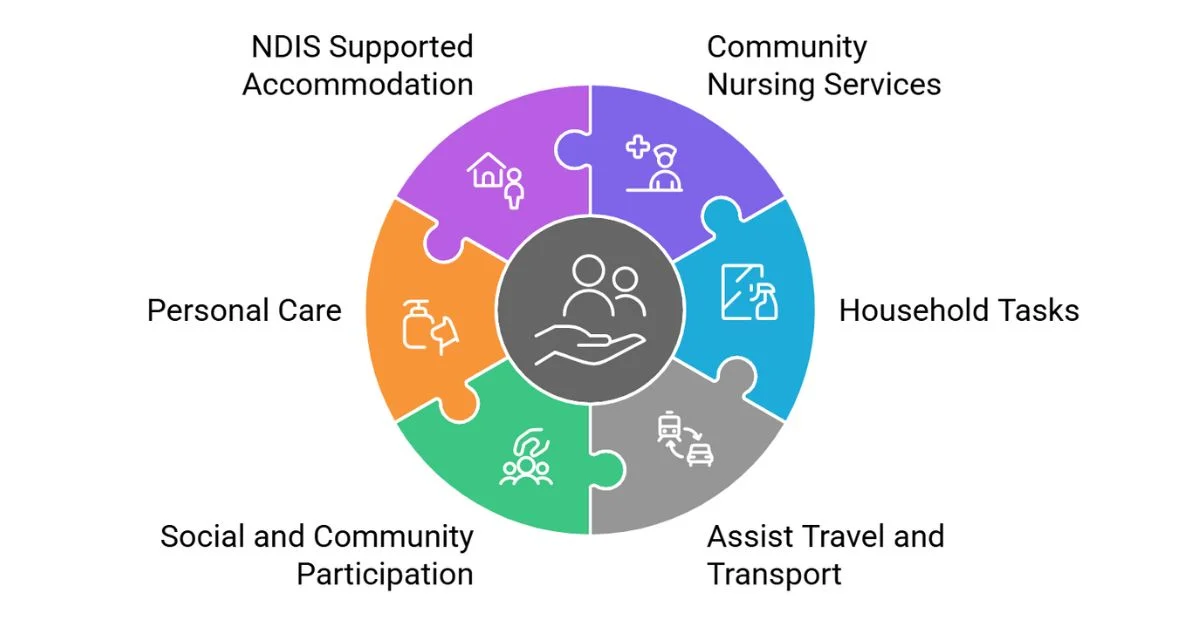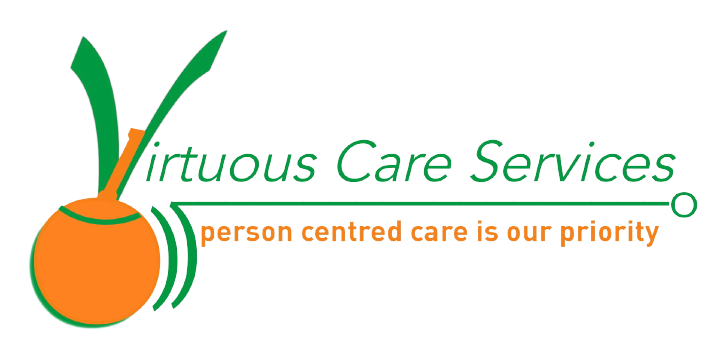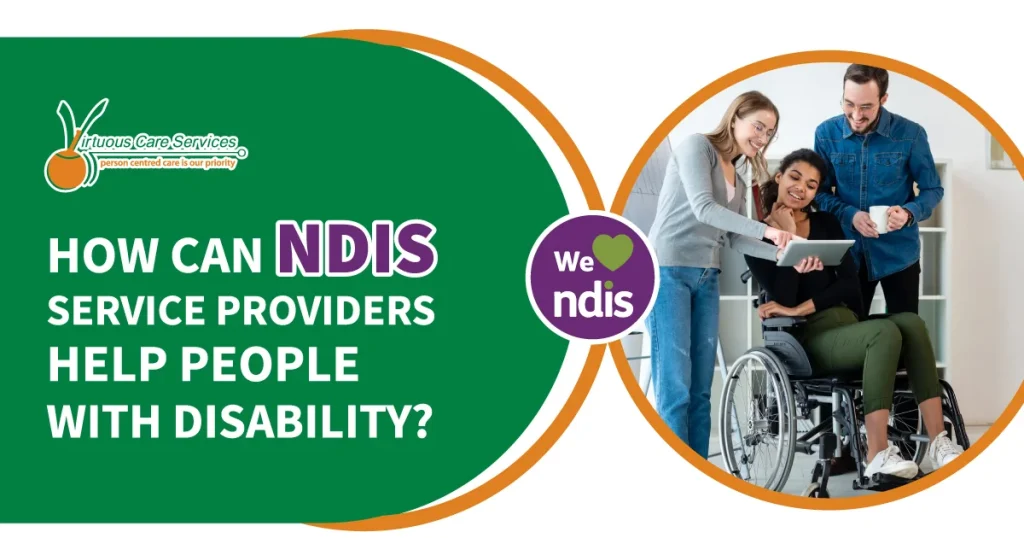The National Disability Insurance Scheme (NDIS) is an important program in Australia. It helps people with disabilities get the support they need. The goal of the NDIS is to give participants more choice and control in their lives.
An NDIS service provider is a person, business, or organisation that delivers services to participants. These services can include help at home, personal care, learning skills, therapy, transport, and community participation.
In this blog, we will explain in very easy words what an NDIS service provider is, what they do, how to choose the right one, and why they are important for people with disabilities.
What is an NDIS Service Provider?
An NDIS service provider is a person, a business, or an organisation that gives these supports. Providers can offer many kinds of help, such as personal care, therapy, learning new skills, help at home, transport, and community activities. Every service is designed to improve the quality of life for people with disabilities.
Participants can use their NDIS plan to pay for providers. This makes sure the support is affordable and fair. Choosing the right provider is very important because good support can help a participant reach goals, while poor support can cause stress or problems.
There are two main types of providers under the NDIS:
Registered providers
These providers are officially NDIS registered, meaning they are approved by the NDIS Quality and Safeguards Commission. Being NDIS registered ensures they follow strict rules about safety, quality, and care. Many participants prefer NDIS registered providers because they must meet high standards and are regularly monitored.
Unregistered providers
These providers are not officially registered with the NDIS Commission. However, they can still deliver services. Some participants choose them because they may offer more flexible or
personalised support.
Both registered and unregistered providers can give good care, but the main difference is that registered providers are checked more closely for safety and quality.
Why Are NDIS Service Providers Important?
NDIS service providers play a big role in daily life for participants. They help people with disability live more independently, take part in the community, and reach their goals.
Without providers, many participants would not be able to get the care, skills, or support they need. Providers are also important for families and carers, because they share the workload of looking after someone with a disability.
Types of Services NDIS Providers Offer
NDIS service providers give many kinds of support to make life easier for people with disabilities. Some providers focus on one type of help, while others offer many different services. Every service is designed to improve daily life, health, and independence. Below are the main services explained in very easy words.
Community Nursing Services
Community nursing is important for people who need health care at home or in the community. Trained nurses provide this service. They can help with wound care, giving medicines, diabetes management, and many other medical needs. They also support people who live with long-term health conditions. Having a nurse visit at home means the person does not always need to go to the hospital for treatment. It also gives families peace of mind, knowing their loved one is in safe hands.
Household Tasks
Household tasks are part of daily life, but they can be hard for some people with disabilities. NDIS providers can give support with cleaning, washing clothes, cooking meals, and shopping for groceries. They can also help with organising the home and making sure it stays safe and tidy. With this support, participants can live in a clean and healthy environment. It also helps them feel more independent because they can take part in some tasks while getting help with others.
Assist Travel and Transport
Travel is important for staying active and connected. Many people need help to get to school, work, medical appointments, or social activities. Providers can offer direct transport, such as driving the participant to the place they need to go. They can also train and support participants to use public transport on their own. This gives people more freedom and confidence to move around in their community.
Social and Community Participation
Being part of the community makes life more enjoyable. This service helps participants join events, meet new people, enjoy hobbies, or take part in local programs. It can include going to sports, joining clubs, or attending classes. The main goal is to make sure people are not left alone at home but have chances to connect with others, learn new things, and build friendships.
Personal Care
Many participants need help with personal care. This includes showering, dressing, brushing hair, grooming, and eating meals. Providers give this support with respect and kindness so participants feel safe, clean, and comfortable every day. Personal care is very important for health and dignity.
NDIS Supported Accommodation
Some people cannot live safely on their own. NDIS-supported accommodation offers a safe place to live, with trained staff available to help with daily needs. It may be short-term, such as when families need a break, or long-term, for people who need regular support. These homes are designed to be safe, comfortable, and supportive, giving participants the chance to live as independently as possible.

How to Choose the Right NDIS Service Provider
Choosing the right provider is very important. The wrong choice can affect the quality of life for a participant. Here are some steps in simple words:
- Think about your needs: Make a list of what support you need most.
- Check if the provider offers those services: Not all providers give every type of service.
- Look at experience: A provider who has worked with people with similar needs is often more helpful.
- Ask about training: Workers should be trained and respectful.
- Check if they are registered: Registered providers must follow strict rules.
- See if they listen to you: A good provider respects your choices and goals.
- Ask other participants: Reviews and feedback from others can help you decide.
Benefits of Working With a Good NDIS Service Provider
When you have a good provider, life becomes easier and more enjoyable. Here are some benefits:
- You get reliable support every day.
- You feel safe and respected.
- You can learn new skills.
- You can be more independent.
- You can take part in your community.
- Your family or carer gets time to rest.
- You can achieve goals step by step.
Challenges With NDIS Service Providers
While many providers give great services, sometimes there are problems. Some challenges participants may face include:
- Providers are not showing up on time.
- Workers who are not well-trained.
- Providers who do not listen to participants’ needs.
- Too much paperwork or confusion about funds.
- Limited providers in rural or regional areas.
It is important to speak up if you face problems. The NDIS Quality and Safeguards Commission can help if there are serious issues.
Rights of NDIS Participants
Every participant has rights when using providers. These rights include:
- The right to be treated with respect.
- The right to make choices about services.
- The right to privacy.
- The right to safe and quality care.
- The right to complain if something is wrong.
How Providers Work With Families and Carers
NDIS providers not only support participants. They also work with families and carers. A good provider will:
- Keep families informed.
- Listen to the family’s concerns.
- Share updates about progress.
- Respect the role of carers.
- Offer respite care so families can take a break.
The Role of the NDIS Quality and Safeguards Commission
This commission makes sure providers follow rules. They check that providers give safe, respectful, and good-quality services. If a participant is unhappy, they can complain to the commission.
The commission can take action against providers who break the rules. This protects participants and makes the NDIS safer.
Frequently Asked Questions
1. Can I change my NDIS provider?
Yes, you can. If you are not happy with a provider, you can switch to another.
2. Do I need to use registered providers only?
Not always. If you are NDIA-managed, you must. If you are self-managed or plan-managed, you can use both registered and unregistered.
3. How do I find an NDIS provider?
You can use the NDIS Provider Finder tool, ask your support coordinator, or search online.
4. What if I am not happy with my provider?
First, talk to them. If the issue is not fixed, you can complain to the NDIS Quality and Safeguards Commission.
5. Do providers cost the same?
Most providers follow the NDIS price guide. But some unregistered providers may offer lower rates.
Conclusion
An NDIS service provider is an essential part of the life of a person with disability. They help with daily tasks, personal care, community access, therapy, skills, and more.
Choosing the right provider is crucial for ensuring safety, independence, and overall happiness. A good provider will listen, respect, and work with participants to reach their goals.
The NDIS has changed many lives by giving choice and control to people with disabilities. Service providers are the hands and hearts that make this program work every day.
For professional and compassionate NDIS support, contact Virtuous Care Services today, your trusted NDIS service provider.

